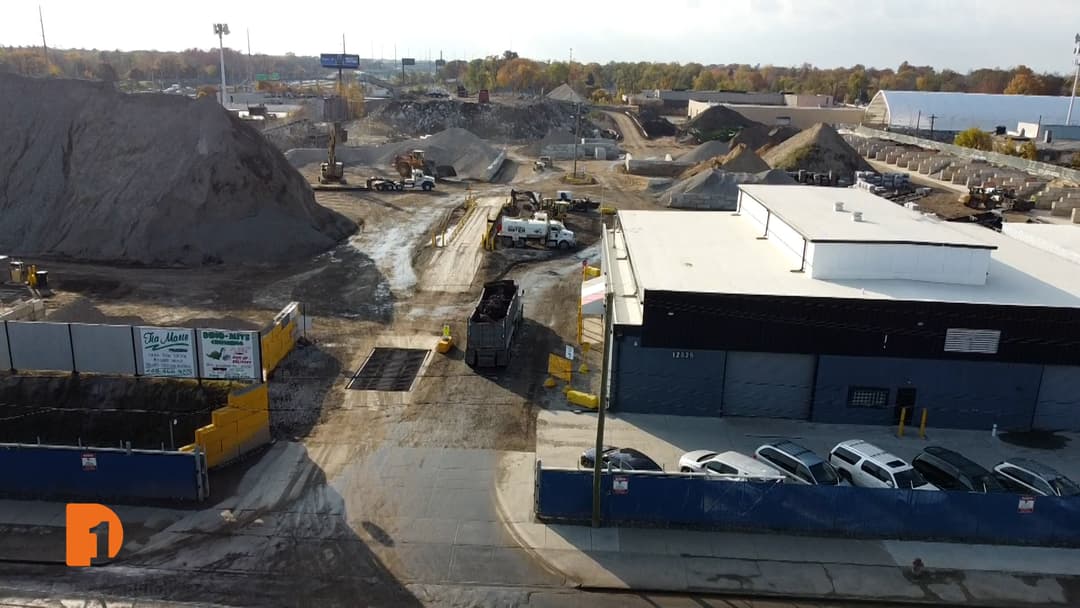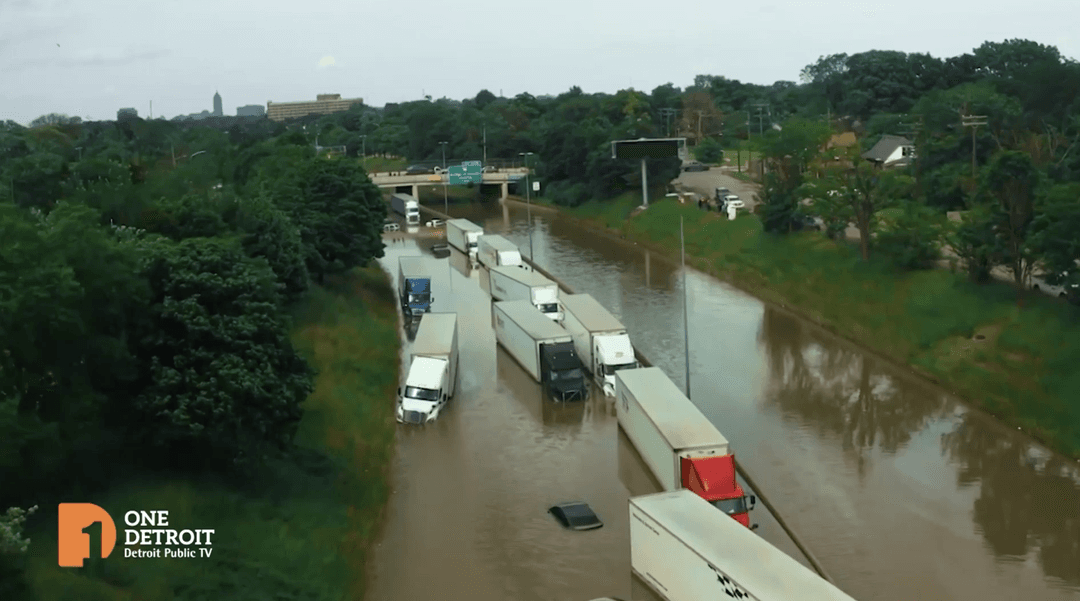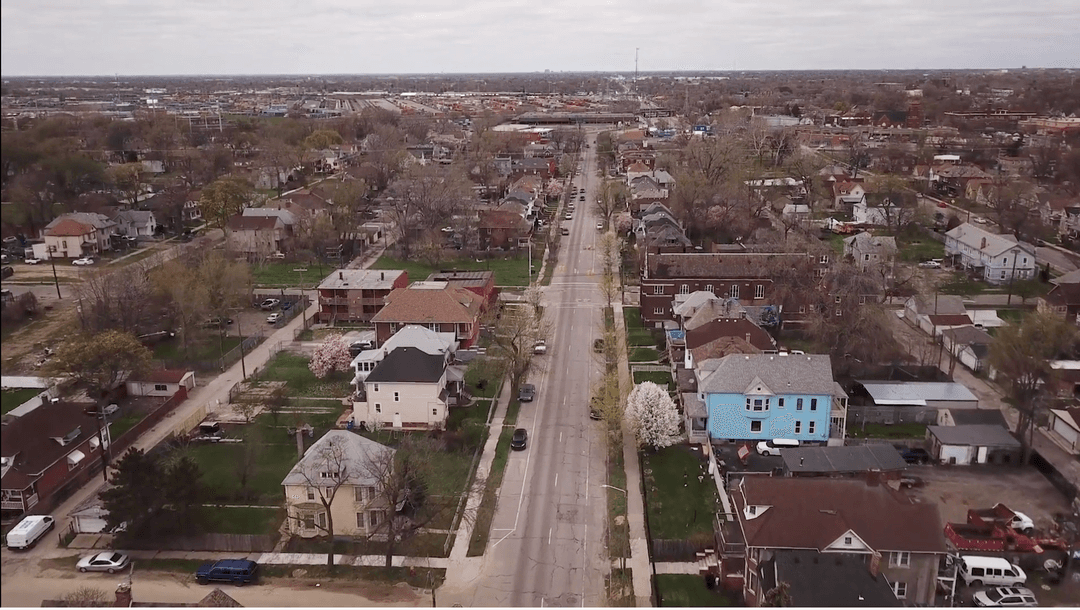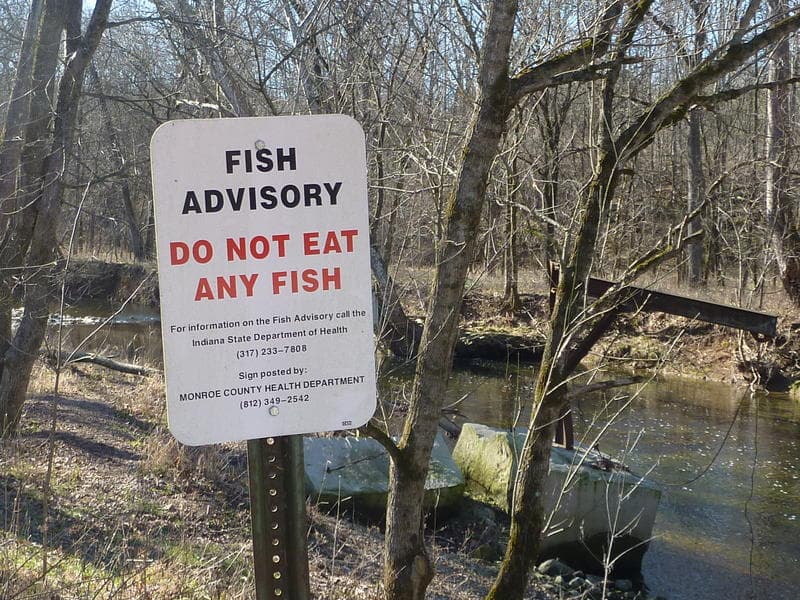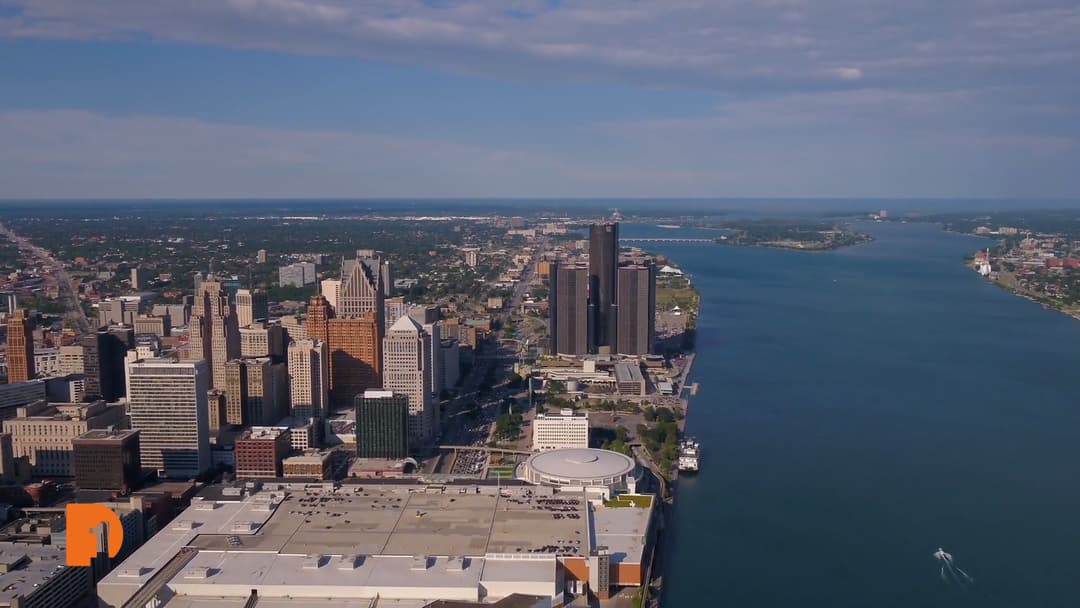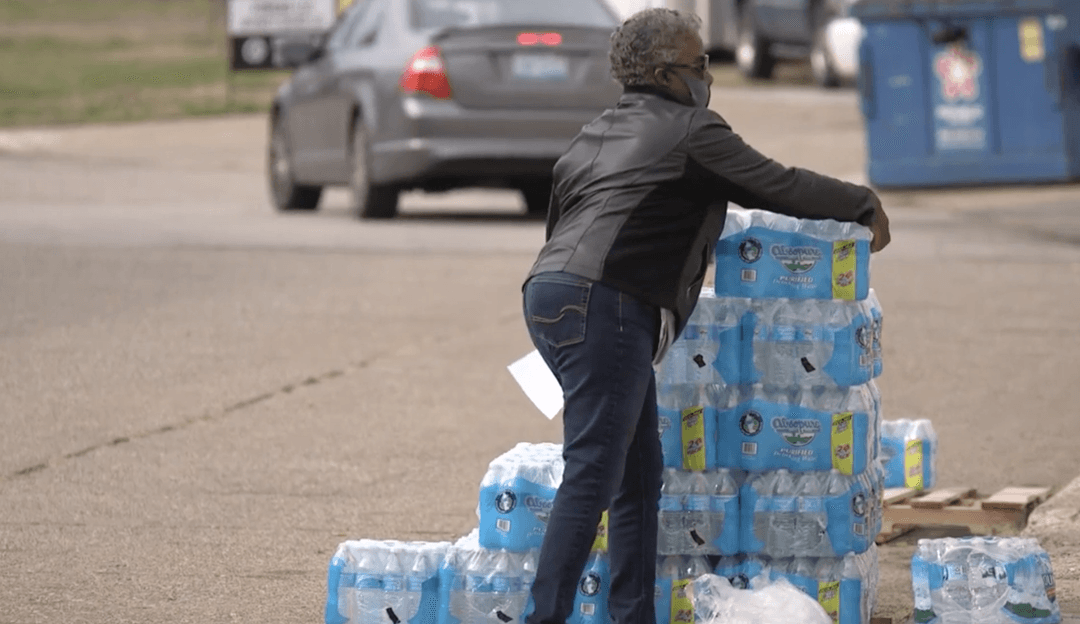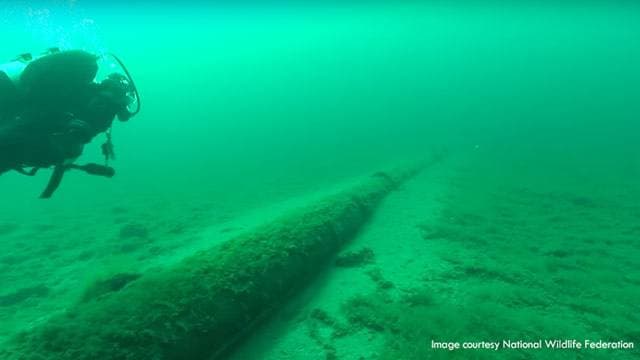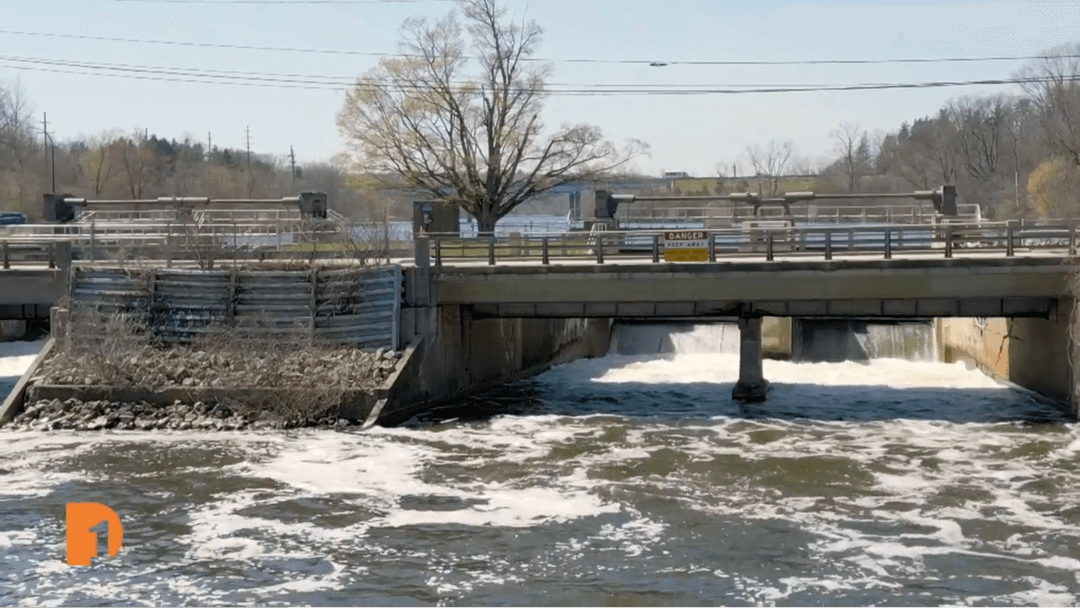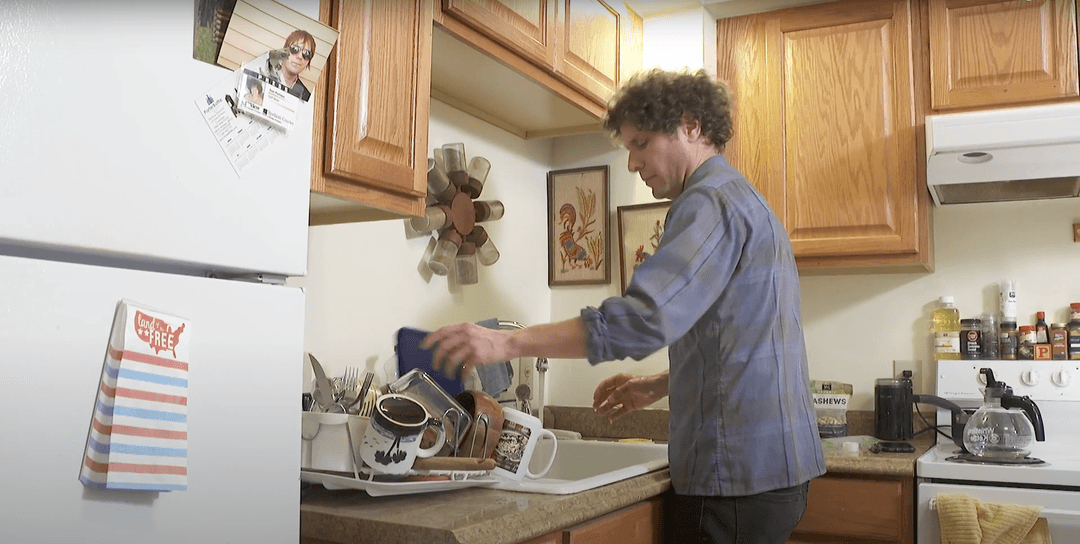Toxic Coal Ash Contaminants Could Threaten Michigan’s Drinking Water, Great Lakes
Aug 25, 2022
The industrial history of Great Lakes communities across the region was primarily fueled by coal, and reminders of the era remain. Numerous coal ash ponds are located around the region and hold the remains generated by these power sources. Coal ash is toxic, containing mercury, cadmium, arsenic and other heavy metals, and it could potentially threaten Michigan’s drinking water, as well as the Great Lakes.
A few miles south on the Lake Michigan shoreline is the town of Waukegan, Illinois, population of about 89,000, where several coal ash sites sit about 100 yards from Lake Michigan. “Waukegan has suffered from industrial pollution. We have five superfund sites,” said Dulce Ortiz, a lifelong resident and community activist. “So we’ve seen the horrors that these companies have done to our community.”
Detroit PBS’s “Great Lakes Now” host Ward Detwiler speaks with Northwestern University professor and journalist Kari Lydersen about the research being done by the Energy News Network and a group of Lydersen’s journalism students and the efforts to prevent coal ash from contaminating Michigan’s environment.
One Detroit collaborated with Great Lakes Now to produce this featured story, part of Great Lakes Now’s episode “Poisonous Ponds: Tackling Toxic Coal Ash.”
Full Transcript:
Ward Detwiler, Host, Great Lakes Now: Kari, to start out, what is coal ash exactly and why is it something we should know about?
Kari Lydersen, Asst. Professor, Medill School of Journalism, Northwestern University: Yeah. What is coal ash? It’s a toxic byproduct of burning coal to make electricity. And even as coal plants around the country, including in Michigan, have closed in high numbers, this coal ash is left over and there’s nearly a billion tons of it and it’s toxic. And coal plants by nature are near water, near rivers and lakes, so the coal ash is usually stored on site in big pits or ponds right near these rivers and lakes. And the great majority nationwide, including in Michigan, of these pits and ponds are also unlined. So there’s really nothing much separating the toxic coal ash from the groundwater.
It has the potential to contaminate groundwater and if you’re relying on a well for water, that could be your household water. And it could also get into municipal water supplies or just into lakes and rivers where people are fishing and recreating. So, it is a really big ecological and environmental threat that a lot of people actually don’t even know about.
Ward Detwiler: So how is this issue playing out in Michigan and specifically in southeast Michigan?
Kari Lyderssen: In Michigan, there are about 80 coal ash pits and ponds where this toxic material is being stored on the site of coal plants that are either still operating or closed. And in southeast Michigan, there’s coal ash at the River Rouge site, at several DTE electric sites and Consumers Energy sites. The Michigan sites tend to be on the West Coast, along Lake Michigan and then also in the Detroit area. And actually the great majority of the sites it has proven to be contaminating groundwater, that’s true in Michigan and around the country as well.
Ward Detwiler: So, if these coal plants are closing, does the problem just go away?
Kari Lydersen: Not at all, the coal ash is still there for good unless it’s removed. So, it’s something that even as all these coal plants have closed, we get rid of the air pollution from the coal plants, but we still have to deal with the coal ash. One interesting thing in Michigan, there’s more plans in Michigan than in other states to actually remove the coal ash, which is generally a good thing, but that can raise some questions, too. They’ll take it to landfills. How will they do that transportation? You’re talking like hundreds of trucks a day for a long time, in a lot of cases, when they’re bringing it to a landfill. And then also, how quickly will they do it? That’s the plan, but will in fact still just sit in place for a long time.
Ward Detwiler: So what are some of the options for cleaning this up and keeping it out of the drinking water?
Kari Lydersen: We don’t really know when and where it’s getting into drinking water. There’s some sites nationwide where contamination from coal ash and water supplies has been documented. But one of the bigger problems is we just don’t know what’s going on with it, which is all the more reason to remove that coal ash or make sure it’s stored safely. So yeah, the main options are leaving it in place, which is usually not a good option, but the option that a lot of companies are planning to take, or removing it, like a lot of companies in Detroit are looking to do. And then, what a lot of people see as the best option, is what they call beneficial reuse, which is basically recycling it. Coal ash is actually used safely as a major ingredient in concrete and other building materials and also to sort of build up lands. So, there’s unsafe ways to do that in terms of building up land, but there’s also really safe ways to recycle coal ash, and then it’s not contaminating groundwater.
Ward Detwiler: What regulation is there for coal ash? Is it the state’s responsibility or is the federal government taking the lead?
Kari Lydersen: There is a federal rule from 2015 that says, the companies need to test the groundwater and make those records publicly available and come up with plans to close these coal ash sites in a way that they are not contaminating the water. So that rule, the companies did do a lot of testing and put a lot of data online, but in terms of the requirements to safely close the sites, they were largely being ignored and the government really wasn’t taking much action. And then, during the Trump administration, the rules were actually loosened and really no enforcement was carried out.
But just this year, starting in January, the EPA has really basically said it’s going to take these rules seriously and it started issuing some requirements and some decisions and some denials of extensions on closing these sites. In some states, they actually have laws that are specific to coal ash, and then they have other environmental rules that could be used to crack down on coal ash. But in most cases, the states have been fairly lax in doing anything regulatory about coal ash either.
Ward Detwiler: What do we know about the health risks for people if they drink water that’s been contaminated with coal ash?
Kari Lydersen: Well, we know these heavy metals are bad. Some of them are neurotoxins that affect brain development and health. Some of them are linked to higher rates of cancer and heart disease and other diseases. So these heavy metals — arsenic, cobalt, lithium, boron — these are definitely things you want to avoid drinking or having too much contact with. We don’t really know to what extent they are in drinking water and putting people at risk, but there’s definitely pathways for them to get into drinking water, especially private wells and even municipal water supplies. The health risks it causes play out over time, so you’ll never know exactly what might have contributed to you developing cancer or a disease like that. So, you know that exposure to these metals in coal ash, that’s the kind of risk that this raises.
Ward Detwiler: If you had a crystal ball, what do you see as some of the future options for regulations or laws or even private industry taking responsibility for coal ash?
Kari Lydersen: Well, the rules that we have in place on the federal level from 2015 actually do a lot to protect us or to start cleaning up the coal ash. So, I can’t predict what’s going to happen in the next presidential election, but if we have a switch, it’s safe to say that that progress might stop or even be rolled back on the federal clean-ups. I think we could see some stepped-up action from state governments and then industry.
A crazy thing is, doing a good cleanup doesn’t necessarily even cost industry anything because they bill it to the ratepayers in most states. So, we have high energy prices right now, which might make it less likely that companies will want to get their customers mad by raising their energy prices even more. But at the same time, if a company can do the right thing and they actually get to make a profit on that spending in some states. So, you know, maybe that will become actually more common.
Stay Connected:
Subscribe to One Detroit’s YouTube Channel & Don’t miss One Detroit Mondays and Thursdays at 7:30 p.m. on Detroit Public TV, WTVS-Channel 56.
Catch the daily conversations on our website, Facebook, Twitter @DPTVOneDetroit, and Instagram @One.Detroit
View Past Episodes >
Watch One Detroit every Monday and Thursday at 7:30 p.m. ET on Detroit Public TV on Detroit Public TV, WTVS-Channel 56.
Stay Connected
Subscribe to One Detroit’s YouTube Channel and don’t miss One Detroit on Thursdays at 7:30 p.m. and Sundays at 9 a.m. on Detroit PBS, WTVS-Channel 56.
Catch the daily conversations on our website, Facebook, Twitter @OneDetroit_PBS, and Instagram @One.Detroit
Related Posts
Leave a Reply
Your email address will not be published. Required fields are marked*


